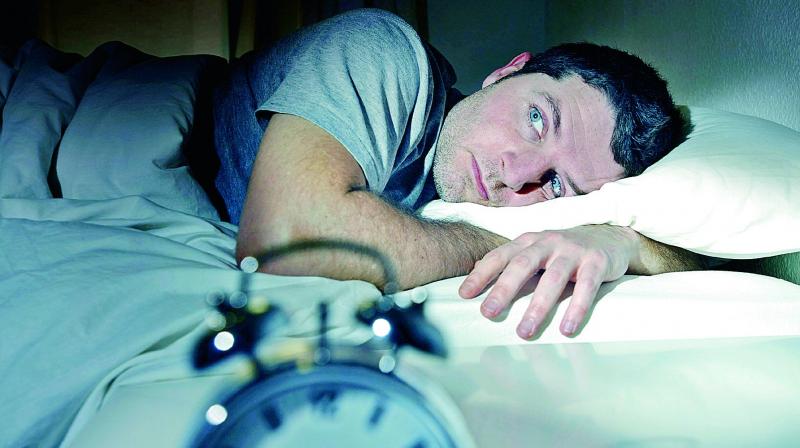Body's sleep-less nightmares
Sleep is an important physiological process that restores physical and mental health.

The less you sleep the more problems you have and that is proving to be true with the sleep hours reducing from eight to six hours for most people. The average sleep hours have gone down to six-and-a-half hours according to the health profile, showing that the body is not getting enough rest as required.
The biological clock, chemicals in the brain and hormones required get affected when the sleep cycle is not to the optimum level as required. Due to this reason, the risk of cardiovascular diseases and brain strokes have increased explained Dr K. Narasa Raju, senior interventional cardiologist at Yashoda Hospitals.
The health profile has shown that the sleep hours of the youngsters is now six-and-a-half hours and sleeping less continues due to work, use of mobile phones and also bad sleeping habits. How does this affect the body?
Sleep is an important physiological process that restores physical and mental health. Epidemiological studies suggest that short sleep duration is associated with various psychological abnormalities apart from increasing cardiovascular (heart attack) and cerebrovascular (stroke) events. One study with objective sleep data followed up for 16 years has found two fold increased risk of death in individuals with short sleep duration.
Does the onset of cardiovascular problems in those who sleep less start within a span of five to six years or is it over a longer period of time?
The baseline health status of the individual will lead to the onset. Sleep is only one part of the problem. There can be other factors like food habits, lifestyle disorders, genetics and environmental conditions. Sleep cycle and the number of hours impact the body system. Less hours of sleep often results in increased cases of uncontrolled hypertension, diabetes, obesity and elevated levels of bad cholesterol. A good deep sleep has therapeutic effect on the body. Hence maintaining proper sleep hygiene is important.
A recent study has found that lack of sleep also affects the hydration process in the body? How does that happen?
The hormone involved in maintaining hydration status, vasopressin, normally gets secreted in late sleep period. Missing this phase in sleep may affect its release and hence the hydration. In addition there is disruption of other hormonal, cardiovascular and kidney systems operating to maintaining hydration. Therefore, people deprived of sleep should consciously maintain proper hydration.
A lot of people working in night shifts try to catch up on their sleep during the day? What do studies suggest about these individuals? Has their body adapted to the new regime? Is their immunity able to bear with the change?
Altered sleep patterns have negative impact on cardiovascular health. Individuals tend to suffer from high BP, obesity, and heart rhythm disturbances. The body can’t take the effort of working at night. On the face, it looks like the person is fine but there is internal fatigue and often we find people saying they are all right but that is not so. Mood disturbances, constant and recurrent headaches and abdominal obesity are the first signs of the discomfort being felt by the body.
With too many distractions how can the sleep cycle be improved?
Positive lifestyle changes like regular aerobic exercise, managing mental stress by listening to soothing music, or engaging oneself in activities like painting and reading a book could help. There are many de-stress options and they can differ from person to person. It is important to ensure that sleep routine is followed properly for maintaining a healthy life cycle.

